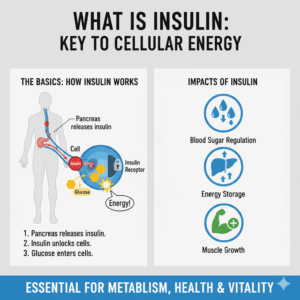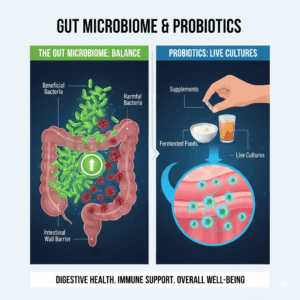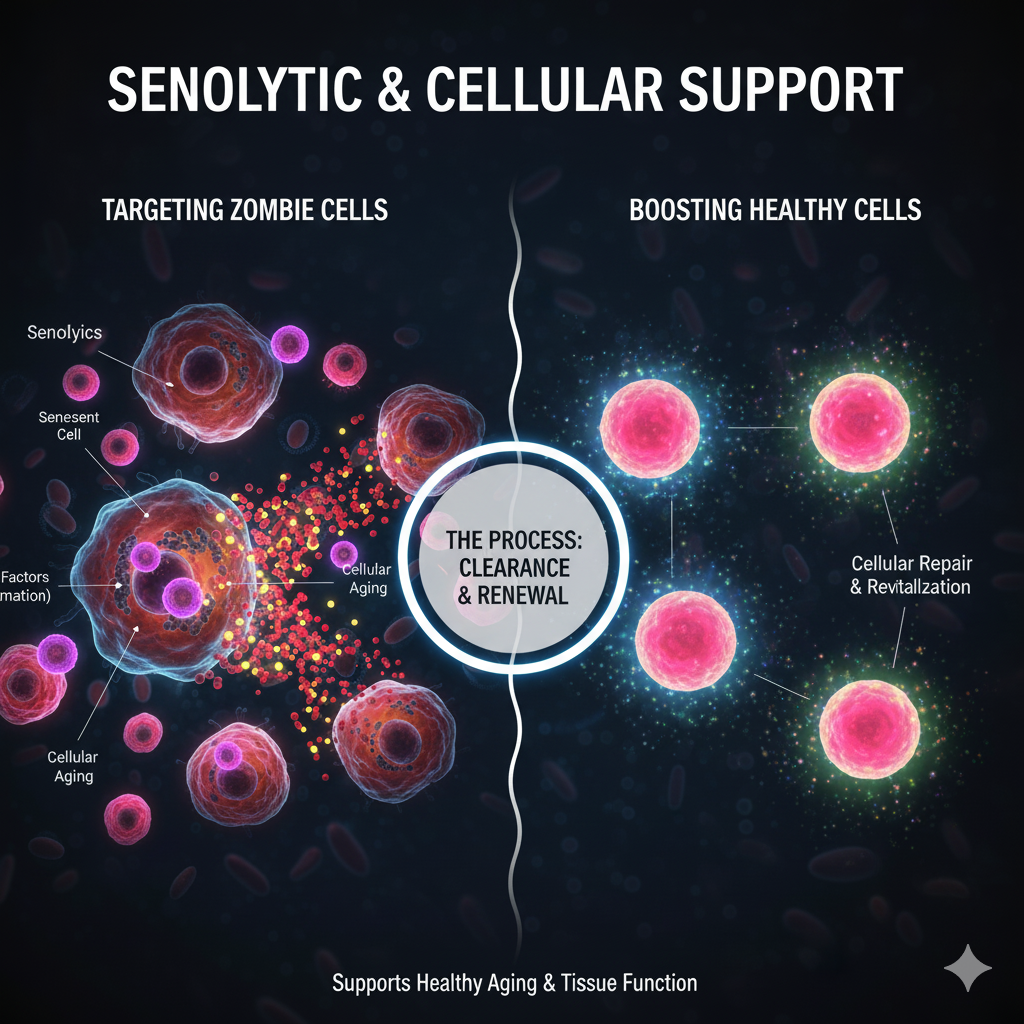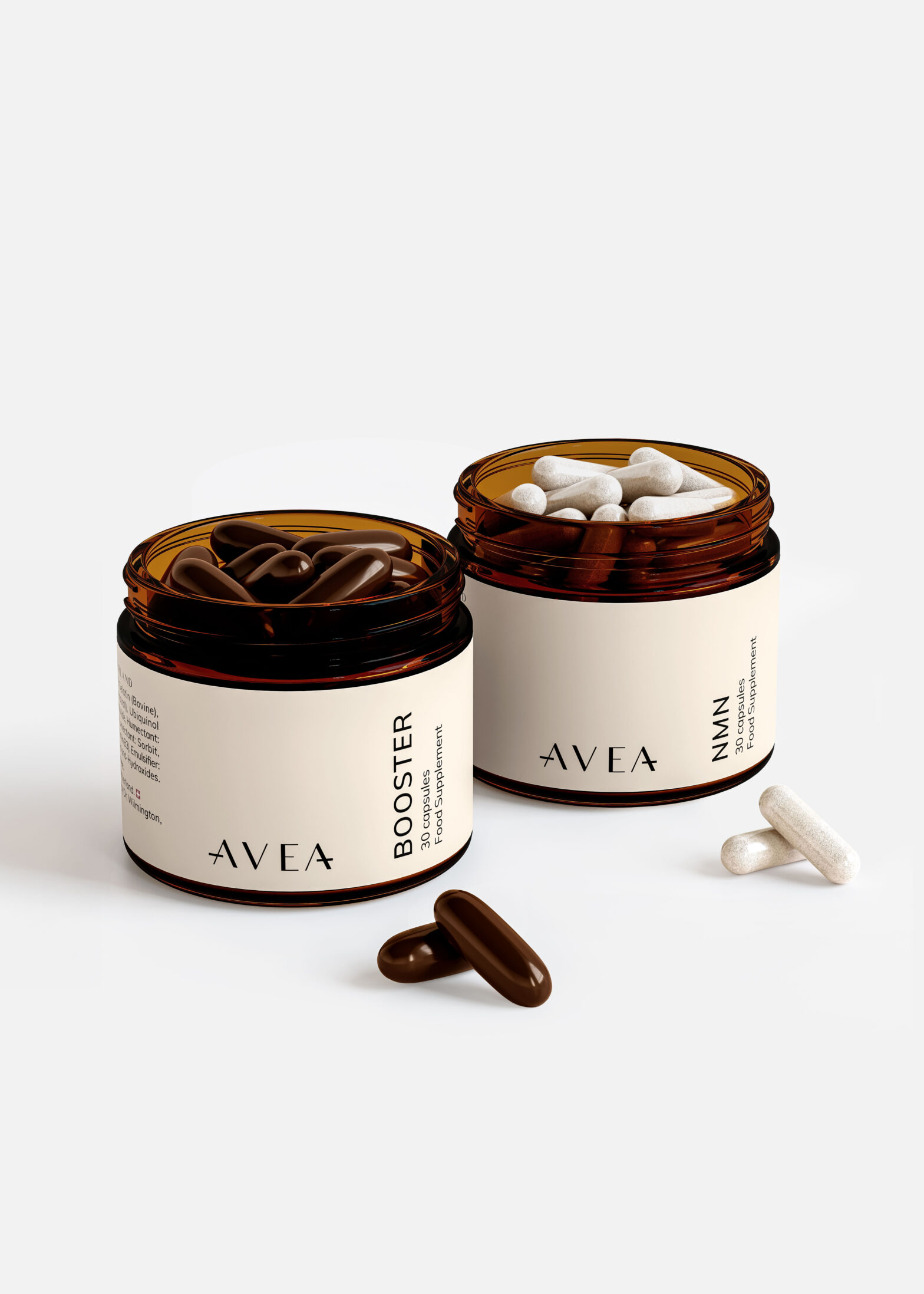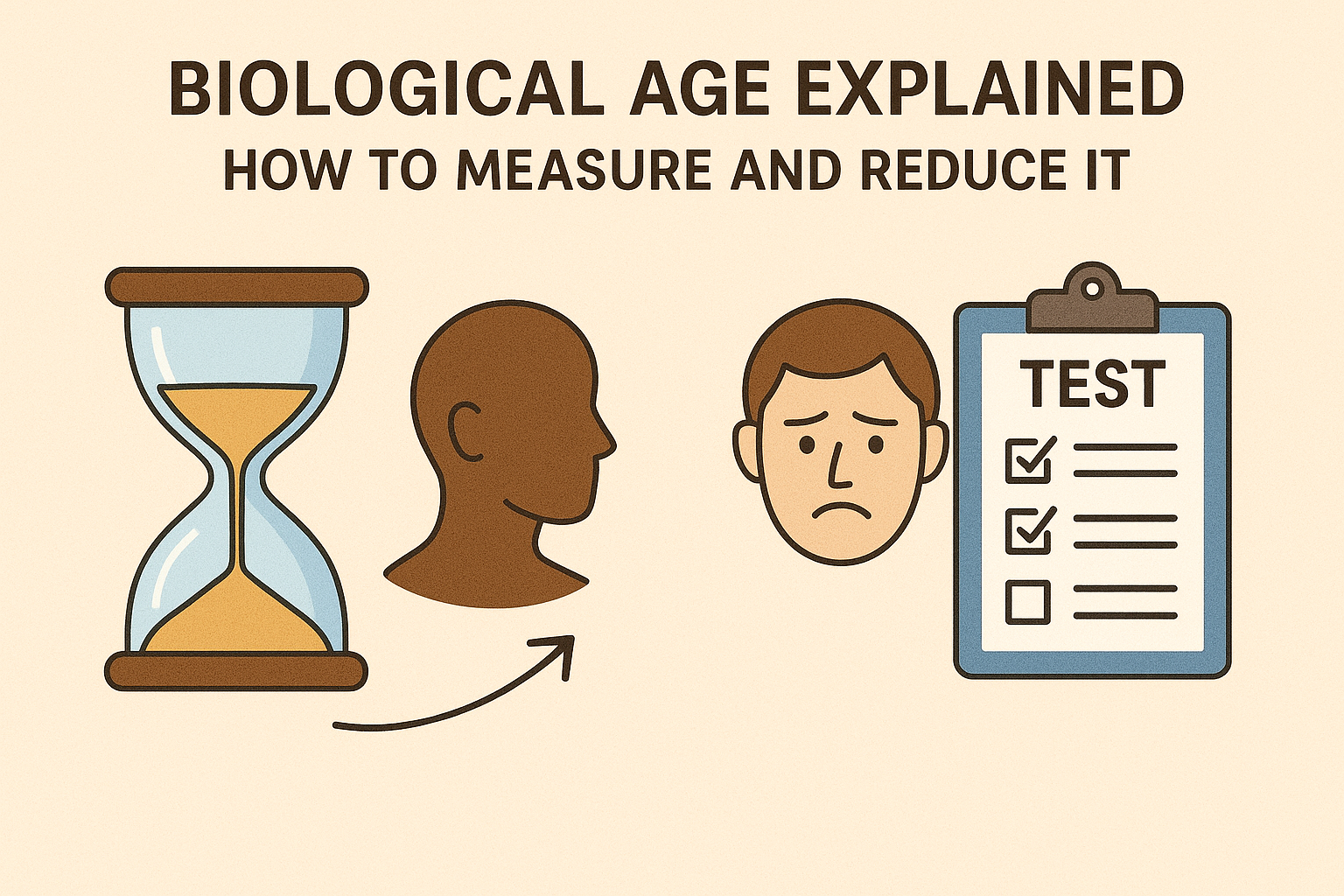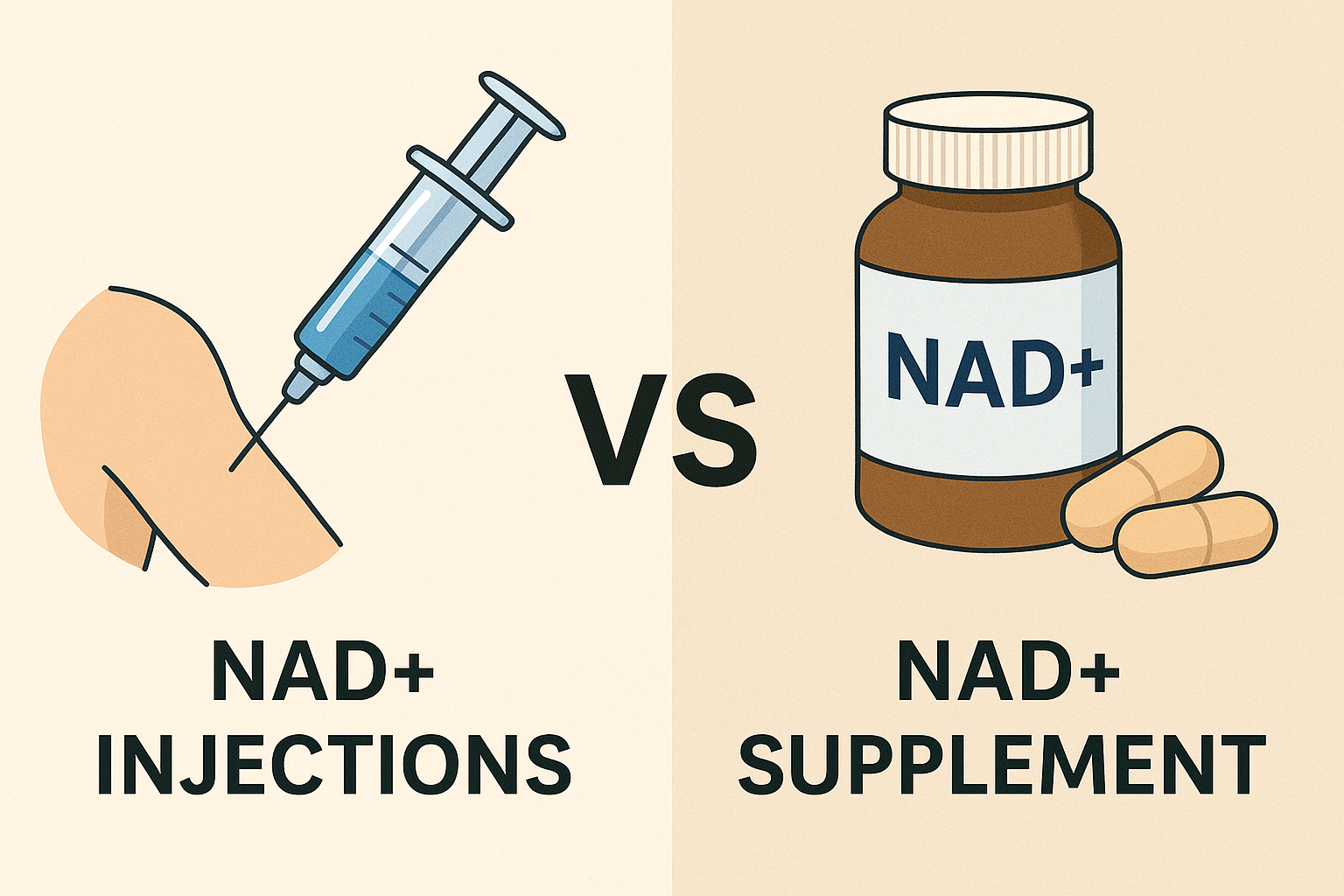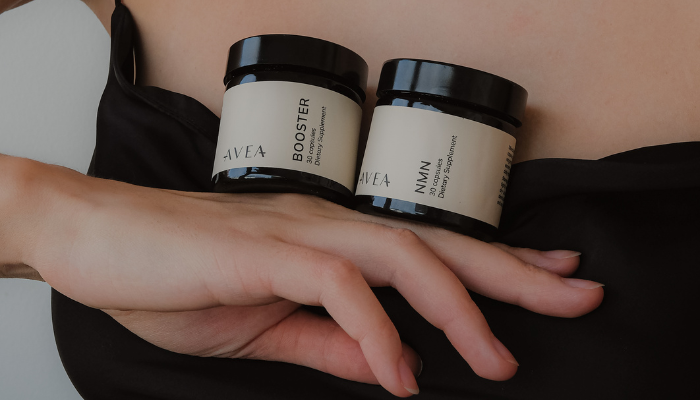Most of us are familiar with essential vitamins like A, C, and D—nutrients discovered because their absence led to obvious health problems like scurvy or rickets.
But as science and technology advance, other nutrients are finally being recognised for their potential to significantly impact our health.
Ergothioneine is a powerful antioxidant found in foods like mushrooms, but even though it’s widely present, many people might not be getting enough to reap its full benefits.
Unlike traditional vitamins, Ergothioneine is subtle in its action, helping to protect cells from oxidative stress and potentially playing a role in preventing chronic diseases.
This Avea article will introduce you to Ergothioneine, explaining why this little-known compound could be an important addition to your supplement routine, and how it might help you boost your longevity.
Whether you’re new to Ergothioneine or simply curious, this is the perfect place to start.
In this article
FREE anti-ageing guide

- Master the science of rejuvenation.
- Apply proven tips to turn back the clock.
- Transform your health with top longevity specialists.
What is Ergothioneine?
Ergothioneine is a unique amino acid with powerful antioxidant properties that help protect cells from damage.
Discovered in 1909 by Charles Tanret whilst studying the ergot fungus Claviceps purpurea, Ergothioneine has since been explored for its potential health benefits.
Chemically, Ergothioneine is a modified version of an amino acid that is remarkably stable, meaning it can withstand tough conditions within your body without breaking down easily.
This resilience allows it to effectively neutralise harmful molecules and support overall cellular health.
So, where can we find them?
Common food sources of Ergothioneine
Although it’s found in many living organisms, very few can actually produce Ergothioneine.
Fungi, certain yeasts, and some types of bacteria are the primary producers of Ergothioneine.
Interestingly, plants and animals can’t make Ergothioneine on their own. Instead, they acquire it from their environment—plants absorb it from the soil where fungi and bacteria have produced it, and animals get it through the plants and other organisms they eat.
Mushrooms are one of the richest sources of Ergothioneine in our diet, mainly since they belong to the fungi group that can synthesise this compound. For instance, oyster, shiitake, and porcini mushrooms, are known to have some of the highest levels of Ergothioneine.
Other common foods that may contain Ergothioneine include those that have had contact with fungi in the soil.
Note that, since plants and animals rely on Ergothioneine from external sources, the levels in foods can vary widely depending on the soil and environmental conditions where they were grown or raised.
As such, supplements with a consistent daily dose become essential if you want to make sure your cells are continuously supplied with this important nutrient.
Ergothioneine supplement: Avea’s Cell Primer
The Cell Primer contains potent antioxidants like Ergothioneine, Quercetin, PQQ and Selenium. They support energy production in your cells, and help repair and rejuvenate cells by neutralising damaging free radicals.
The best Ergothioneine supplement
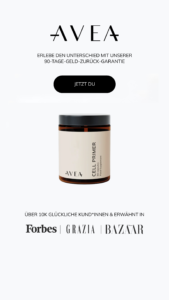
- 6 potent & well-researched Longevity ingredients, including Ergothioneine
- Created by longevity experts
- Promoting autophagy & clearance of aged cells
- Defending cells against oxidative stress
Benefits you can expect
- Reduces oxidative stress: helps protect your cells from damage caused by harmful molecules known as free radicals.
- Promotes autophagy: encourages your cells to clean out old, damaged parts so they can stay healthy and function more effectively.
- Supports senescent cells’ clearance: Assists in removing old, non-functioning cells that can accumulate and cause issues in the body.
- May boost brain health & cognition: Could enhance brain function and help keep your mind sharp.
- Science-backed longevity ingredients: Contains ingredients that are supported by research to potentially boost longevity.
How much Ergothioneine should you take per day?
The right dose of Ergothioneine can vary depending on factors like your age, overall health, and specific conditions. Currently, there isn’t enough scientific evidence to pinpoint an exact dosage range for everyone.
In our Cell Primer, we’ve included 5mg of Ergothioneine per pill, which is sufficient for daily maintenance. This amount is based on research showing that Ergothioneine is quickly absorbed and mostly retained by the body.
A study on healthy individuals taking 5mg and 25mg per day found significant increases in blood levels of Ergothioneine with minimal loss through urine, indicating that the body efficiently uses and retains this valuable antioxidant.
Is Ergothioneine safe?
Yes. Extensive research has demonstrated that L-ergothioneine is safe for consumption, even at levels much higher than those typically found in foods.
High-dose studies have shown no evidence of toxicity, mutagenicity, or genotoxicity, confirming its safety for mammals.
Note: The “L” in L-ergothioneine refers to its specific molecular structure, which is the biologically active form of the compound.
In recognition of its safety, L-ergothioneine has received Generally Recognized as Safe (GRAS) status from the FDA.
In Europe, L-ergothioneine (marketed as Ergoneine) was endorsed by the European Commission’s EFSA panel in 2016, confirming its safety for use in foods and supplements.
The EFSA determined that it is safe at 5 mg per serving in food and at doses of up to 30 mg/day for adults and 20 mg/day for children.
The established margin of safety is significant, with limits of 470 mg/kg/day for adults and 216 mg/kg/day for children, ensuring that it is safe even for vulnerable populations such as infants, toddlers, and pregnant women.
Mechanisms of action of Ergothioneine
Ergothioneine acts as an antioxidant, although its exact mechanism is not fully understood.
Unlike conventional antioxidants, it may inhibit free radical formation, especially those caused by transition metal ions like copper and iron.
Laboratory studies indicate Ergothioneine provides dose-dependent protection against DNA and protein oxidation, particularly in relation to heme protein-associated oxidative damage, which aligns with its high expression in red blood cells.
Ergothioneine transporter
When it comes to its mechanism of action, here’s what you need to know. SLC22A4, also known as the Ergothioneine transporter, is a specialised protein that helps move Ergothioneine into your cells. No need to remember the name of this protein, just its role.
SLC22A4 is also referred to as OCTN1 (Organic Cation Transporter Novel 1); are the same protein, with SLC22A4 being the official scientific name.
Ergothioneine can’t pass through cell membranes on its own, so SLC22A4 steps in to transport it where it’s needed most, especially during times of stress or injury.
The activity of this transporter can vary between people, which might explain why some individuals absorb more ERG than others.
So, are you ready to see how supplementing with Ergothioneine can boost your health?
What is Ergothioneine supplement good for?
Whilst human studies are still lacking, here’s an overview of how Ergothioneine might be a great supplement if you’re looking to boost your longevity, and stay the heck away from chronic diseases [1].
1. Neuroprotective benefits of Ergothioneine
Research suggests that Ergothioneine might play a role in protecting the brain from oxidative stress, which is a major factor in neurodegenerative diseases like Parkinson’s.
Observational studies have found lower levels of Ergothioneine in those with these conditions compared to healthy people of the same age.
This indicates that maintaining adequate levels of Ergothioneine could be beneficial for brain health, although direct human studies are still needed.
Preclinical studies show that Ergothioneine may protect brain cells from damage and support cognitive function by reducing harmful oxidative stress and promoting the growth of new neurons.
It also appears to be more effective when used alongside other antioxidants. Also another reason why we created the Cell Primer with 6 synergistic ingredients.
The best Ergothioneine supplement

- 6 potent & well-researched Longevity ingredients, including Ergothioneine
- Created by longevity experts
- Promoting autophagy & clearance of aged cells
- Defending cells against oxidative stress
2. Anti-ageing benefits of Ergothioneine
- Human studies: Decreased serum Ergothioneine levels have been linked to ageing. A study on adults aged 55-85 found an inverse correlation between serum Ergothioneine levels and age, although levels were not significantly affected by health status, BMI, or other factors.
- Disease susceptibility: Lower Ergothioneine levels or altered OCTN1 activity (the famous transporter) have been associated with an increased risk of conditions such as ischaemic stroke, chronic kidney disease, and Crohn’s disease, indicating that Ergothioneine may play a role in modulating disease susceptibility.
3. Clinical studies on various conditions
- Exercise: A small study suggested that Ergothioneine supplementation might have minor benefits on thiol redox status and nitric oxide concentration in healthy men, but no significant effects on inflammation or antioxidant activity were observed.
- Diabetes/Anaemia: Preliminary claims suggest that Ergothioneine may alleviate diabetes-associated anaemia, although results have not been published.
- Joint pain: In a small study, Ergothioneine was part of a supplement that showed slight improvements in joint range of motion and pain reduction, although these effects could not be clearly attributed to Ergothioneine.
- Kidney disease: An ongoing clinical study indicates that Ergothioneine may offer moderate improvements in kidney function and quality of life for patients with chronic kidney disease.
4. Animal and cell studies
- Skin/UV damage: Ergothioneine has been shown to protect skin cells from UV-induced damage, supporting its use in skincare products.
- Ischaemic injury: In animal models, Ergothioneine reduced oxidative stress markers and histological damage, suggesting potential cytoprotection in ischaemic injury.
- Diabetes: Ergothioneine demonstrated cytoprotective effects in cell models of hyperglycaemia, reducing oxidative stress and cellular senescence, indicating potential benefits for diabetes management.
In a nutshell, lower levels of Ergothioneine in the blood have been linked to ageing, and people with lower levels may be more susceptible to certain diseases like stroke, kidney disease, and Crohn’s disease.
Some studies suggest that Ergothioneine might have mild benefits for exercise recovery, joint pain, and kidney function, though the effects are not yet fully clear.
In animal and cell studies, Ergothioneine has shown potential in protecting skin from UV damage and reducing damage from oxidative stress, which could be useful for managing conditions like diabetes.
However, more research is needed to confirm these benefits.
How long does Ergothioneine stay in your system?
Ergothioneine is a nutrient that your body holds onto for a long time. In one study, volunteers took 5–25 mg of Ergothioneine daily for a week, and less than 4% of it was flushed out through urine, meaning the body kept most of it.
Your body breaks Ergothioneine down into two main by-products, hercynine and S-methyl-Ergothioneine, both of which are linked to how much Ergothioneine you take.
This same pattern was seen in mice, suggesting it might work similarly across different species. The study also found lower levels of markers related to oxidative stress, supporting Ergothioneine’s antioxidant benefits.
However, not everyone absorbs it the same way. This could be due to differences in a specific transporter in the body, and some bacteria might also break it down, meaning they have their own way of processing Ergothioneine.
What time should you take Ergothioneine supplement?
The effectiveness of Ergothioneine might be influenced by when you take it. The SLC22A4 transporter (also known as OCTN1), responsible for getting Ergothioneine into your cells, is regulated in a circadian manner.
In mice, the expression of this transporter peaks just before their active/feeding phase, meaning that the body might absorb Ergothioneine more efficiently at certain times of the day.
This timing could potentially impact the supplement’s overall efficacy. Keep in mind that, there are still questions about the reliability of studies that measure Ergothioneine levels in the blood, as these levels might fluctuate depending on the time of day the samples were collected.
We recommend taking the Cell Primer with or after a meal to better absorb the blend of active ingredients. Morning intake allows the supplement to start working early in the day, promoting cellular renewal and protecting healthy cells throughout your daily activities.
Potential interactions with medications
If you’re considering adding Ergothioneine to your supplement routine, it’s important to be aware of possible interactions with certain medications.
Ergothioneine might interact with drugs like metformin, gabapentin, and certain chemotherapeutics.
This doesn’t necessarily mean you should avoid Ergothioneine, but it’s a good idea to consult with a healthcare professional to ensure it won’t interfere with your current treatments.
Other applications of Ergothioneine
Ergothioneine has proven to be a versatile compound with a wide range of applications beyond its health benefits.
In the food industry, it can be used to extend the shelf life of perishable items. It works by inhibiting enzymes like polyphenol oxidases, which are responsible for browning and spoilage in foods such as shrimp and crabs.
Ergothioneine’s ability to prevent melanosis, particularly in seafood, highlights its potential in maintaining the quality and freshness of various products.
In cosmetics, Ergothioneine is widely recognised for its skin-protecting properties. Due to its antioxidant capabilities, it can be used in skincare products to combat damage caused by UV radiation and environmental stressors.
Learn the importance of a skincare routine.
Keynote from Avea
Ergothioneine is gaining recognition as a powerful antioxidant with significant potential to boost our health and well-being [2].
Found mainly in mushrooms, this unique compound is efficiently retained by the body, supported by a specialised transporter, SLC22A4, highlighting its important role in our biology.
As science continues to explore its benefits, Ergothioneine could soon become a key player in promoting longevity, vitality, and resilience in the face of modern-day challenges. Embracing Ergothioneine now could be a wise step towards a healthier future.
References

